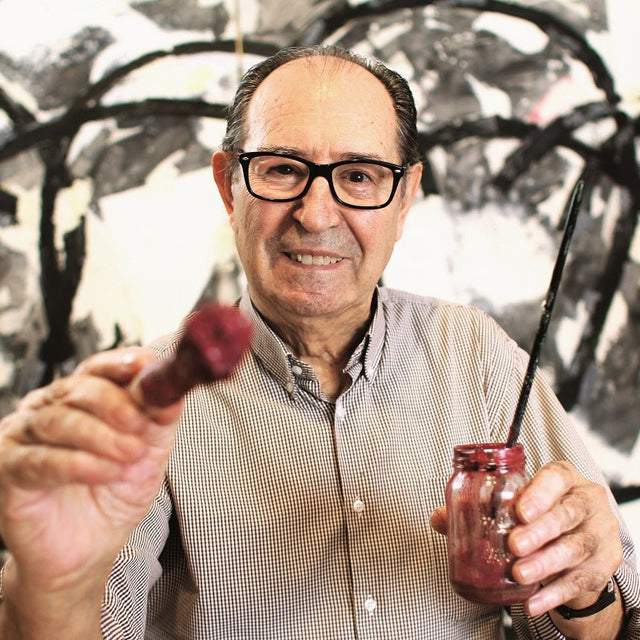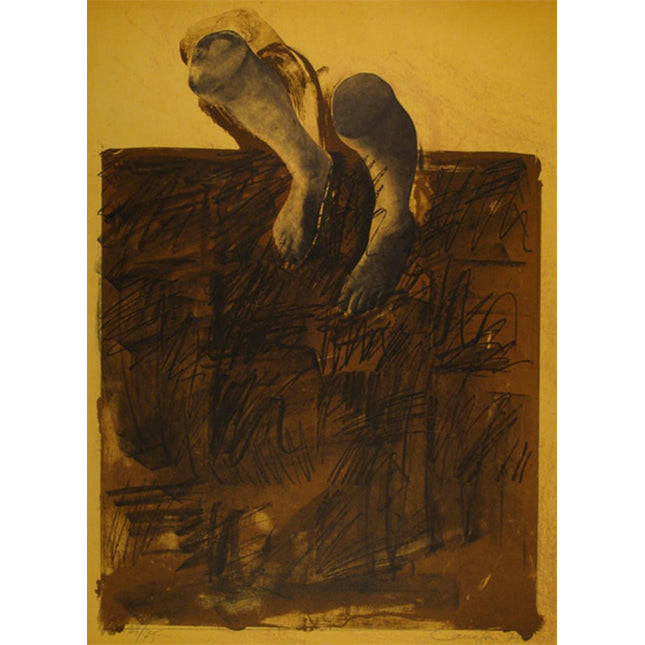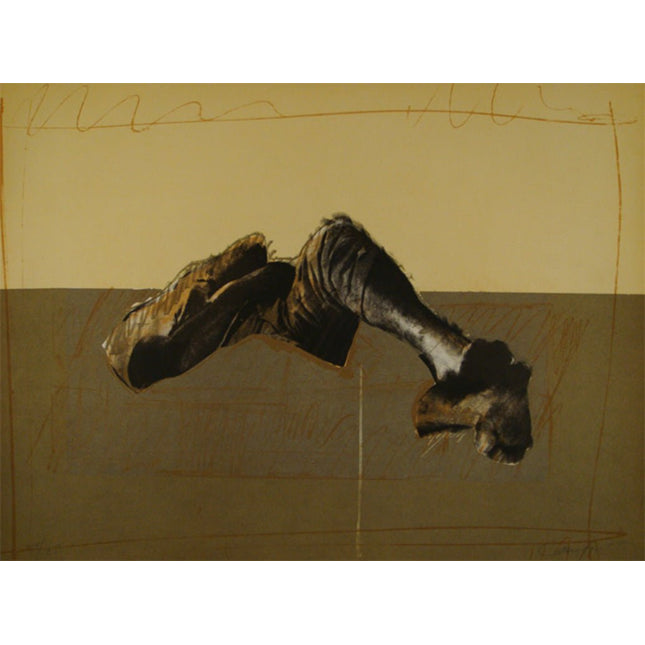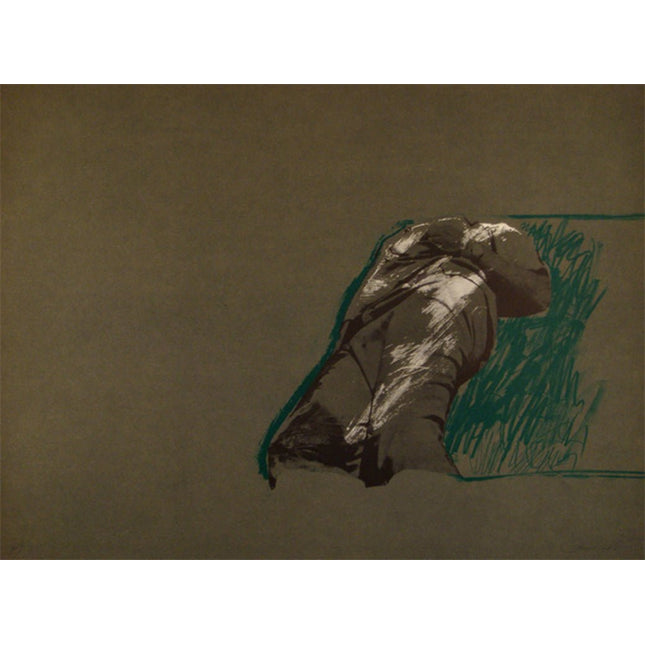Rafael Canogar (Toledo, 1935), painter and engraver, is considered as one of the leading figures of Spanish Abstract Art. Between 1948 and 1953 he was a disciple of Daniel Vázquez Díaz and focused on the study of the avant-garde and evolved rapidly to an informalist abstraction.
In 1957, Canogar founded with Antonio Saura, Manuel Millares, Luis Feito, Manuel Rivera, Pablo Serrano, Juana Francés, Antonio Suárez and José Ayllón the El Paso group. Between 1957 and 1960 they all defended the informalism as an expression of freedom in an attempt to enter Spain in the international framework.
In 1960 he participates in the "New Spanish Painting and Sculpture" show at MOMA New York.
In 1963, he starts a new stage in his life in which he gradually gets close to figuration with a rising narrative content. In works of this period we find new materials such as newspaper clippings and photographs his subjects are close to the human and the nature of objects. As the critic Vicente Aguilera says about the works of this stage: "The themes do not express opinions or reflect facts, but facts are human tragedies, are encoded images where the human, object and amount, become symbolic hierarchy". In 1971 he is awarded with the Grand Prize of the Bienal de São Paulo.
After 1975 we find in his work a return to an abstraction that quickly becomes a new iconography that represents man as a plastic element through masks and faces. Notable from this period are his still lifes, city scenes and the heads of Julio González.
In 1982 he was awarded the National Prize of Plastic Arts.



